In this most impenetrably weird of NFL seasons, all kinds of mysteries remain unsolved. There are breakouts nobody seems to trust, stars on unexpected declines and great teams with major quarterback questions that don't seem to be going away. New coaches have sparked breakthroughs while last year's breakthroughs have been frustrated by struggling coaches. Ask around the league and you'll get about four teams everyone can agree are good, four that are bad and 24 teams that might still be total mysteries as we hit Halloween.
Let's take a closer look at some of those unsolved mysteries, several of which played out even further in Week 8. And let's start with arguably the game of the year, where the Texans took the Seahawks to the limit and then let them off the hook:
Why doesn't Bill O'Brien trust Deshaun Watson with the game on the line?
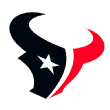 While it's still impossible to understand why O'Brien began the season with Tom Savage as his starting quarterback, the Texans coach deserves a ton of credit for what he has done since inserting Watson into the lineup. O'Brien has shifted his offense to play to Watson's strengths and reduce the rookie's adjustment time, adding option concepts out of the Clemson playbook to a scheme that employed the option just twice last season.
While it's still impossible to understand why O'Brien began the season with Tom Savage as his starting quarterback, the Texans coach deserves a ton of credit for what he has done since inserting Watson into the lineup. O'Brien has shifted his offense to play to Watson's strengths and reduce the rookie's adjustment time, adding option concepts out of the Clemson playbook to a scheme that employed the option just twice last season.
The results have been laudable and revelatory. Watson's abilities as a runner have opened up holes for Lamar Miller & Co. in a previously moribund rushing attack, while the threat of Watson as a runner has slowed down pass-rushers who might otherwise have zealously attacked a middling set of Texans tackles. O'Brien also has added new wrinkles to the game plan every week to keep opposing teams on their toes. The results have been staggering: When you combine his effectiveness as a passer and runner, Watson's Total QBR currently stands at 81.8, the best mark in the league.
On Sunday, it focused on a package built first around a play-fake and Watson motioning to his left, where he also would have the ability to throw a swing pass (which he didn't do). The Texans then gave Watson a series of different looks, including a speed option that earned Houston a fourth-quarter first down. Most notably, the series set up the Texans for two big downfield passes to Will Fuller V, the first of which produced Fuller's second touchdown of the day.
Defenses have to be terrified to line up against Watson snap after snap, which makes O'Brien's decision-making late in games even more curious. Twice now, O'Brien has gotten conservative when his team has been close to a huge victory on the road. In Week 3, facing a struggling Patriots defense, O'Brien elected to kick a field goal with 2:28 to go on fourth-and-1 from the Patriots' 18-yard line in lieu of putting the ball in Watson's hands. The Texans went up by five points, only for Tom Brady to march down the field for a game-winning touchdown to break Houston hearts.
Given that the Patriots game was really Watson's first breakout performance, maybe the Texans weren't ready to place the game in their rookie quarterback's hands. Given that Watson's offense had averaged 36 points per game over the three ensuing weeks and sliced up the Seahawks for 507 yards and 38 points heading into a critical third-and-short, it seemed unlikely that O'Brien would make another mistake.
Instead, after running that aforementioned speed option for a first down on the previous possession, O'Brien got conservative. With everyone and their mother calling for Watson to get on the edge and reduce the Seahawks defenders to quivering messes, O'Brien called for the same motion with Bruce Ellington sprinting out of the slot and into the backfield, and Watson ... handed the ball to Miller on a plunge against an eight-man box. Sheldon Richardson shed the oft-frustrating Xavier Su'a-Filo and made a relatively easy play in the backfield, stopping the Texans after 2 yards, at which point Houston punted.
To the best of my knowledge, the Texans hadn't yet run that motion and immediately handed the ball to Miller as opposed to play-faking, so it's possible that O'Brien was hoping the Seahawks would key upon the motion, get blown off the line of scrimmage and create an easy running lane for Miller. It's also possible that Watson might have had the option to keep the football, although it's hard to figure out who he might have been reading that would have called for Watson to hand off the ball, given that the box was stuffed. O'Brien, for what it's worth, took the blame after the game, saying, "I made some bad playcalls today, and I just have to do a better job on game day."
Seahawks fans must have breathed a sigh of relief when they saw Watson, who had seemed several steps ahead of Pete Carroll's defense for most of the game, hand off the ball. They must have felt even better when the punt unit came on. I don't suspect O'Brien ever gave it a moment of serious thought, but in a four-point game with his defense being shredded downfield, it might even have been the right move for O'Brien to keep his offense on the field and go for it on fourth-and-2 from his own 28-yard line, knowing that a first down would have ended the game. (That's not hindsight, either.)
As it was, the Seahawks marched downfield in three plays. By the third, a Texans defense that had been chasing Wilson around all day and holding up in coverage 30-plus yards downfield fell apart. It's probably hindsight to wonder whether O'Brien should have been willing to stop the clock and call a timeout with 27 seconds to go, but watch Seattle's game-winning touchdown and you'll see a defense that is both physically and mentally exhausted. The pass rush is moving in slow motion. The defense behind it blows a coverage, leaving Jimmy Graham totally uncovered up the seam on a go route.
O'Brien is coaching like he has the 2014-2016 Texans, who had a great defense propping up a suspect offense. The opposite is true here, especially with Houston down J.J. Watt, Whitney Mercilus and Brian Cushing. It has cost his teams two games that would have gone down as statement victories, road wins over perennial Super Bowl contenders. Maybe the Seahawks would have sniffed out Watson on the edge. We're not looking back at O'Brien's decision as egregious or part of a worrisome trend if the Texans hold up on second-and-20 or third-and-18 against the Patriots. In a suddenly competitive AFC South, though, the Texans are going to look back and wish they had trusted their franchise quarterback just a tiny bit more with the game on the line.
Is Carson Wentz the best quarterback in football?
 I wrote about Wentz in advance of Philadelphia's Thursday night game against the Panthers, and he lit up Carolina and Washington in the two ensuing contests. The second-year quarterback went 33-of-55 for 490 yards with seven touchdowns and one interception, good for an 85.3 QBR and a 121.2 passer rating, both of which placed second in the league over that time frame. He also managed to teleport out of a sack against Washington as part of that nationally televised four-touchdown game, which elevated him to (arguably) the top of the MVP leaderboard.
I wrote about Wentz in advance of Philadelphia's Thursday night game against the Panthers, and he lit up Carolina and Washington in the two ensuing contests. The second-year quarterback went 33-of-55 for 490 yards with seven touchdowns and one interception, good for an 85.3 QBR and a 121.2 passer rating, both of which placed second in the league over that time frame. He also managed to teleport out of a sack against Washington as part of that nationally televised four-touchdown game, which elevated him to (arguably) the top of the MVP leaderboard.
Wentz wasn't quite as effective against the 49ers on Sunday. The 2016 second overall pick wasn't bad by any means, but he threw an ugly interception to set up the 49ers for a (relatively meaningless) touchdown. The interception came on third down, where both Wentz and the Eagles have been lights out this season, but the 49ers -- who possessed the league's worst third-down defense heading into the game -- held the Eagles to a 4-for-14 performance on third down. Wentz, who had a passer rating in excess of 130 on third down coming into the game, went 3-for-8 and racked up a passer rating of 9.9 on third downs. He also missed an open Alshon Jeffery for a would-be touchdown, and when he connected with Jeffery for a 52-yard touchdown late in the game, it was on a jump ball where Jeffery did most of the work.
It's inevitable that Wentz will regress toward the mean on third down, which will take some of the shine off his long drives. He's still going to be in the discussion for the league's best quarterback, though, given how effective Wentz has been on first and second downs. Wentz's numbers dropped off dramatically last season with Lane Johnson out of the lineup, and it remains to be seen whether he'll suffer some with Halapoulivaati Vaitai replacing Jason Peters at left tackle, but Wentz isn't leaving this discussion anytime soon barring an injury.
Is DeAndre Hopkins the best wide receiver in football?
 The most damning thing I can say about the Brock Osweiler era in Houston is that his black hole of mediocrity managed to suck in Hopkins for an entire season. After suffering through a totally anonymous 2016, Hopkins has turned things on with Watson at quarterback. Sunday was the receiver's best game of the season: Hopkins turned his 11 targets into eight catches and 224 yards, including a 72-yard touchdown that saw him run through most of the Seahawks' defense on a screen, breaking Kam Chancellor's ankles along the way.
The most damning thing I can say about the Brock Osweiler era in Houston is that his black hole of mediocrity managed to suck in Hopkins for an entire season. After suffering through a totally anonymous 2016, Hopkins has turned things on with Watson at quarterback. Sunday was the receiver's best game of the season: Hopkins turned his 11 targets into eight catches and 224 yards, including a 72-yard touchdown that saw him run through most of the Seahawks' defense on a screen, breaking Kam Chancellor's ankles along the way.
Hopkins has become a target hog in the Texans' offense; his 76 targets are third in the league (Antonio Brown paces the NFL with a whopping 92). His numbers commensurately rank among the league leaders as well; "Nuk" is now third in the league behind Brown and Adam Thielen with 606 receiving yards and tied for the league lead alongside Fuller with seven touchdown receptions.
In addition, Hopkins has been a monster in terms of drawing pass interference penalties. The 25-year-old already has been the victim on seven pass interference calls this season, which comfortably leads the league. Nobody else in the league had more than five heading into this week. The 97 yards he has generated on those calls was tied with Brown and Demaryius Thomas for the league lead coming into the week. Throw those seven conversions into the pile and Hopkins has generated 40 first downs for his team, narrowly topping Brown for the league lead.
We don't think about Hopkins as being on the same tier as Brown, but it's becoming clearer and clearer that much of that difference had to do with the quality of his quarterbacks. Brown has spent his career with Ben Roethlisberger. Julio Jones has been working with Matt Ryan. Before 2017, Hopkins had been thrown passes by Osweiler, Brian Hoyer, Ryan Fitzpatrick, Ryan Mallett, Case Keenum, Matt Schaub, Tom Savage, T.J. Yates and Brandon Weeden. Hopkins' predecessor in Houston, Andre Johnson, had to spend his career propping up Schaub and a series of similarly middling quarterbacks. Here's hoping we get to see Hopkins and Watson together for a long time.
Are the Browns and 49ers ever going to win a game? Who first?
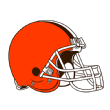
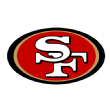 The Colts might quietly be the worst team in the league, but the Browns and 49ers are the two teams with zeros in the win column. They've each flashed moments of competence, but neither team won on Sunday, moving to 0-8. The Browns gave the Vikings a competitive half before folding in England, while the 49ers slowed down Wentz but did little on offense in losing 33-10.
The Colts might quietly be the worst team in the league, but the Browns and 49ers are the two teams with zeros in the win column. They've each flashed moments of competence, but neither team won on Sunday, moving to 0-8. The Browns gave the Vikings a competitive half before folding in England, while the 49ers slowed down Wentz but did little on offense in losing 33-10.
It's still extremely likely that both teams will manage to win at least one game this season. We can use the log5 method to estimate the Browns' and 49ers' chances of winning each of their eight remaining games. Neither team is likely to be favored the rest of the way, but they have enough of a shot at winning each time out that their probabilities each make it over one game.
The 49ers have a 94.1 percent shot of winning at least one game the rest of the way, leaving them a 5.9 percent shot of going 0-16. The Browns are in much more dangerous straits; after failing at Twickenham, Hue Jackson's team will hit its bye week with a 17.1 percent chance of losing out. Naturally, there's a 1.1 percent chance they'll each finish 0-16. Simulating each team's remaining games 1,000 times using these win probabilities in a Monte Carlo simulation, there's a 72.8 percent chance the 49ers will win their first game before the Browns claim theirs.
The good news for Niners fans who don't want to waste good paper bags is that a win might be on the way shortly. San Francisco's two most winnable games are coming up, as they get home games against the reeling Cardinals and Giants before their bye in Week 11. Vegas has the Cardinals as two-point favorites in that game, while log5 actually projects the 49ers to be slight favorites thanks to their home-field advantage. The Giants are projected to be slight favorites, but log5 essentially has that matchup as a coin flip. San Francisco probably will win one of those two games, and five of their final eight matchups are at home.
Things aren't as clear for the Browns, who just lost one of their home games to London and play five of their final eight games on the road. Their best shot at a victory is at home against a Packers team that won't have Aaron Rodgers in Week 14, although they might also have it easier than log5 assumes if the Steelers rest their starters in Week 17. Actually, the Steelers' backups consigning the Browns to an 0-16 season would be suitably poetic for Cleveland.
Do the Jaguars actually have the best defense in football?
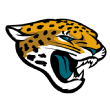 The Jags were on bye this week, but they headed into Week 8 leading the league in defensive DVOA and they'll come out of it leading the league in points allowed per game, thanks to the Texans-Seahawks shootout. Todd Wash's defense clearly belongs in a group with the Bills, Seahawks and Steelers among the best defenses of the first half, and while I'd pick the Jaguars from that group, there's not a huge difference between those four units so far.
The Jags were on bye this week, but they headed into Week 8 leading the league in defensive DVOA and they'll come out of it leading the league in points allowed per game, thanks to the Texans-Seahawks shootout. Todd Wash's defense clearly belongs in a group with the Bills, Seahawks and Steelers among the best defenses of the first half, and while I'd pick the Jaguars from that group, there's not a huge difference between those four units so far.
What you might hope to see from the Jaguars over the second half is more consistency. Over its first seven contests, Jacksonville has produced four great defensive performances, games in which it allowed a total of 23 points. In the other three tilts, the Jags gave up an average of 24.3 points. Calais Campbell has paced a pass rush that has racked up a league-leading 33 sacks, but 20 of those sacks came in two games.
There's not much unsustainable about what the Jaguars have done so far on the field. They're not an average unit relying on ridiculous performances in the red zone or on third down. The Jags have recovered six of 11 fumbles on defense, essentially league average. The only thing you might worry about is how the Jaguars have been remarkably healthy: Their 11 defensive starters have yet to miss a game this season, and that's without getting to rotation players such as Dante Fowler Jr. and Aaron Colvin. Marcell Dareus will add another interior pass-rusher to the rotation, as if the Jags needed one.
What will really help the Jaguars make their case, though, is a remarkably easy second-half schedule. Over their final nine games, the Jaguars will face just one offense that ranked in the DVOA top 15 heading into this week, the 12th-ranked Texans. The Texans and Seahawks will likely climb up the rankings some after their instant classic, but four of Jacksonville's next five games are against offenses that rank among the eight worst units in football. Unless Blake Bortles throws them into a bunch of short fields, the Jags' defense should hold up over the rest of the season.
Are the Browns worse than they were last year?
 I'm afraid so. Their record was 0-8 in both cases, but after eight games, the 2016 Browns had been outscored by 80 points and had racked up 2.2 Pythagorean wins. This year's model has been outscored by 83 points and has generated only 1.8 Pythagorean wins. I wouldn't say the 2016 Browns were significantly better by any stretch of the imagination, but if you're looking for signs of hope, Cleveland fans ... Sam Darnold looked good on Saturday.
I'm afraid so. Their record was 0-8 in both cases, but after eight games, the 2016 Browns had been outscored by 80 points and had racked up 2.2 Pythagorean wins. This year's model has been outscored by 83 points and has generated only 1.8 Pythagorean wins. I wouldn't say the 2016 Browns were significantly better by any stretch of the imagination, but if you're looking for signs of hope, Cleveland fans ... Sam Darnold looked good on Saturday.
What should the Vikings do at quarterback?
 Wentz's predecessor in Philadelphia has gone from excelling in Week 1 to arguably lurking as the third option in Minnesota. Sam Bradford's knee has him out for the foreseeable future in Minnesota, and while it's clear the Vikings still think Bradford has a shot at playing this season by virtue of keeping him on the active roster, the fact that he aggravated the knee injury at the first time of asking against the Bears doesn't bode well.
Wentz's predecessor in Philadelphia has gone from excelling in Week 1 to arguably lurking as the third option in Minnesota. Sam Bradford's knee has him out for the foreseeable future in Minnesota, and while it's clear the Vikings still think Bradford has a shot at playing this season by virtue of keeping him on the active roster, the fact that he aggravated the knee injury at the first time of asking against the Bears doesn't bode well.
Right now, the competition seems to be the relatively known quantity of Case Keenum and the unknown behind Door No. 2, Teddy Bridgewater, who is back in practice and set to be removed from the physically unable to perform list after the Vikings' upcoming bye week. Bridgewater, of course, has missed the past year-and-a-half after suffering a gruesome knee injury in training camp last summer.
I don't think anyone would argue against Bridgewater having more upside. The Vikings made the playoffs with Bridgewater under center in 2015, when the former Louisville star made strides across the board. With Bradford a free agent after the season and Bridgewater's contract likely to expire, Minnesota probably wants to get as much information as possible on whether it will want to give its former first-round pick a contract extension this winter.
And yet, I'm not sure the Vikings should immediately make the move to switch from Keenum to Bridgewater. Keenum has had spotty stretches, but his numbers as a Vikings quarterback are comfortably comparable to those of Bridgewater:
You might fairly argue that Keenum is working with a more impressive group of receivers than Teddy ever had, but Bridgewater also had Adrian Peterson shouldering much of the workload in 2015, when Stefon Diggs was an inconsistent rookie and Adam Thielen was buried on the depth chart. Keenum's offensive line is also better, as evidenced by the dramatic difference in sack rate, although I would hesitate to say it's a great pass-blocking unit.
Bridgewater is the better player, but I'm not sure the gap is significant enough -- especially given how long Bridgewater has been out -- for the Vikings to rush him back into the lineup. Minnesota is in great shape, with a 79.9 percent chance of winning its division after the Bears and Lions lost on Sunday. Bridgewater is the most likely candidate to be the starting quarterback for that home playoff game in Minneapolis.
I just don't see a reason to rush to get there. The Vikings are 5-2 with Keenum as their primary passer, so it isn't as if they need to make a change to save their campaign. If the Vikings prepare Bridgewater in the background without pressuring Keenum, they can get Bridgewater in better football shape for when he does make the move back into the starting 11. Meanwhile, if they bring Bridgewater back in Week 10 and he struggles against the fierce pass rushes of Washington or the Rams, the Vikings suddenly have a quarterback controversy on their hands.
Will the defenses of the Bills and Saints continue to look great?
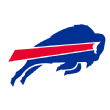
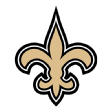 The two most surprising defenses of the season kept things up on Sunday. While the Bears had plenty of success running the football in New Orleans, the Saints limited Mitchell Trubisky and the self-defeating Bears offense to 164 passing yards on 34 dropbacks. The Bills shut down Derek Carr in the rain in Buffalo, as it took 49 attempts for Carr to sneak over 300 yards. Buffalo ranks third in points allowed per game this season, while the Saints are 13th, but third in the league from Week 3 on. Are they going to keep it up?
The two most surprising defenses of the season kept things up on Sunday. While the Bears had plenty of success running the football in New Orleans, the Saints limited Mitchell Trubisky and the self-defeating Bears offense to 164 passing yards on 34 dropbacks. The Bills shut down Derek Carr in the rain in Buffalo, as it took 49 attempts for Carr to sneak over 300 yards. Buffalo ranks third in points allowed per game this season, while the Saints are 13th, but third in the league from Week 3 on. Are they going to keep it up?
I think they'll both decline some. While the Bills' defense is much improved, I still think it is a little dependent upon creating takeaways. Buffalo is forcing turnovers on a league-high 20.5 percent of opposing possessions, and while I don't doubt that Leslie Frazier and Sean McDermott are getting the most out of players such as Micah Hyde and Jordan Poyer, it's tough to see them keeping up that sort of takeaway rate. The leading team in takeaway rate this time last season was the Vikings at 19.0 percent, and they forced takeaways 10.2 percent of the time, which was 23rd in the NFL, over the remainder of the season.
I'd also be concerned about Buffalo's depth. Dareus had faded out of the rotation and was playing only 20 to 25 snaps per game, but he was still a useful player to have in reserve. They've gotten big plays from players such as Matt Milano and Leonard Johnson, each of whom forced a fumble on Sunday, but can everything McDermott touches turn to gold? The Bills also face a tough slate of offenses over the second half, with the Saints, Chiefs and two games against the Patriots on deck.
The Saints also have been turnover-dependent, as they're second (behind the Bills) in takeaway percentage since Week 3. I wrote about their defensive improvements earlier this month, and while their defense has remained effective, they've gone up against teams helmed by Trubisky and Brett Hundley. Coordinator Dennis Allen still needs to find a second pass-rusher to step up next to Cameron Jordan, too.
My suspicion is that both of these defenses will take a step backward over the second half of the season, but they'll still be above average and pushing their teams toward the postseason. Unfortunately for Bills fans, they need a great defense more than the Saints do, given how the LeSean McCoy-led running game has declined dramatically. Drew Brees hasn't been great over the past two weeks, but an average showing from the defense should be enough to push the Saints into the playoffs.
Let's finish up with a lightning round ...
Are the Chiefs going to be the best team in football?
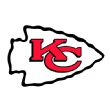 I don't think they'll end the season with the league's best record, although I'm mostly blaming that on injuries. NFL seasons are battles of attrition, and the Chiefs have shed too many parts during a wild start to the season. They're already down two starters at the skill positions in Spencer Ware and Chris Conley. The offensive line is a mess, with Eric Fisher banged up and the three interior starters -- Parker Ehinger, Mitch Morse and Laurent Duvernay-Tardif -- all injured or coming off of injuries. Eric Berry, the team's best player, is done for the season. Justin Houston, arguably its second-best player, is struggling with a recurrence of the knee injury that cost him most of the 2016 season. Tamba Hali is on injured reserve. And this is without getting to players such as Tyreek Hill and Travis Kelce, each of whom have missed time during games.
I don't think they'll end the season with the league's best record, although I'm mostly blaming that on injuries. NFL seasons are battles of attrition, and the Chiefs have shed too many parts during a wild start to the season. They're already down two starters at the skill positions in Spencer Ware and Chris Conley. The offensive line is a mess, with Eric Fisher banged up and the three interior starters -- Parker Ehinger, Mitch Morse and Laurent Duvernay-Tardif -- all injured or coming off of injuries. Eric Berry, the team's best player, is done for the season. Justin Houston, arguably its second-best player, is struggling with a recurrence of the knee injury that cost him most of the 2016 season. Tamba Hali is on injured reserve. And this is without getting to players such as Tyreek Hill and Travis Kelce, each of whom have missed time during games.
Compare this to a team like Pittsburgh, which has had only two starters (Marcus Gilbert and Stephon Tuitt) miss more than one game this season. Andy Reid has done a magnificent job, and the Chiefs are going to be in the running for a first-round bye yet again, but injuries always take their toll over the course of a season.
Has Kirk Cousins made himself more money with his play over the first eight weeks?
 His situation hasn't appreciably changed. Cousins basically has been the same player he was over the previous two seasons by rate stats:
His situation hasn't appreciably changed. Cousins basically has been the same player he was over the previous two seasons by rate stats:
The offense hasn't gone as planned, of course; Jordan Reed has been limited by injuries, while Terrelle Pryor failed to ingratiate himself in the organization and has played his way into a reserve role. Josh Doctson and Chris Thompson have impressed, but the concern now for Cousins is the beaten-up offensive line. Cousins was down to just one starting offensive lineman for stretches of Sunday's loss to the Cowboys, and if Trent Williams and Brandon Scherff are out for the foreseeable future, Cousins will be running for his life against the Seahawks, Vikings, Saints and Giants over the next month. Unless he gets hurt, though, Cousins is still in line to become the league's first $30 million-per-season quarterback in 2018.
What's wrong with the Raiders?
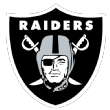 There are problems on both sides of the ball. New offensive coordinator Todd Downing just hasn't grown into the job after the Raiders let go of Bill Musgrave after last season to keep Downing on the staff. As Ted Nguyen pointed out on an episode of the Nickel Package, Downing has moved the Raiders toward a heavier dose of outside zone and abandoned the play-action pass. On Sunday, with Marshawn Lynch suspended and in rainy conditions, the Raiders ran the ball just 14 times on 63 offensive plays from scrimmage, with just two running plays after halftime in what was a competitive game into the fourth quarter.
There are problems on both sides of the ball. New offensive coordinator Todd Downing just hasn't grown into the job after the Raiders let go of Bill Musgrave after last season to keep Downing on the staff. As Ted Nguyen pointed out on an episode of the Nickel Package, Downing has moved the Raiders toward a heavier dose of outside zone and abandoned the play-action pass. On Sunday, with Marshawn Lynch suspended and in rainy conditions, the Raiders ran the ball just 14 times on 63 offensive plays from scrimmage, with just two running plays after halftime in what was a competitive game into the fourth quarter.
On defense, the Raiders haven't created takeaways. Jack Del Rio's unit intercepted 16 passes last season, the ninth-highest total in the league. Through eight games this season, the Raiders haven't picked off a single opposing pass, making them the first team in league history to make it through the first eight games without a single pick. The interceptions will come, but Downing's aptitude for the role remains in question.
Is this Eli Manning's last year as Giants quarterback?
 Possibly. The Giants are out of the playoff picture and have a 39.3 percent chance of coming away with a top-five pick in the 2018 draft, one they would presumably devote toward drafting and developing a quarterback. If they take someone like Josh Allen in the top five, the Giants could very well still keep Manning on the roster for another season to try to win in the short term while theoretically developing Allen as their quarterback of the future, although I'm never sure whether quarterbacks ever get any real benefit from sitting as an understudy under veteran stalwarts. (Think about the breakout quarterbacks of this year, like Wentz, Watson and Jared Goff. Who were they understudies for?)
Possibly. The Giants are out of the playoff picture and have a 39.3 percent chance of coming away with a top-five pick in the 2018 draft, one they would presumably devote toward drafting and developing a quarterback. If they take someone like Josh Allen in the top five, the Giants could very well still keep Manning on the roster for another season to try to win in the short term while theoretically developing Allen as their quarterback of the future, although I'm never sure whether quarterbacks ever get any real benefit from sitting as an understudy under veteran stalwarts. (Think about the breakout quarterbacks of this year, like Wentz, Watson and Jared Goff. Who were they understudies for?)
The problem with Manning is that he's owed $22.2 million on the cap next year, including a $5 million roster bonus and a $10 million base salary. The roster bonus makes it likely the Giants will have to make a decision on Manning in March, before they're even sure they'll end up with a young quarterback in the draft. The Giants could clear out $16 million in cap space by designating Manning as a post-June 1 release, which is money they'll need if they want to re-sign Justin Pugh and Weston Richburg before looking at that enormous Odell Beckham Jr. extension.
Manning to the Jaguars still makes too much sense to actually happen, although it probably won't take place as a trade before this week's deadline. Assuming he wants to play for a competitor with cap space, the market for 2018 isn't going to leave Eli with many other options. Could he follow his big brother to Denver?
Who are the favorites to win the Super Bowl?
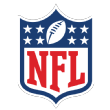 In this topsy-turvy year with no undefeated teams and just a single one-loss team (the Eagles) through Week 8, the title of Super Bowl favorite has been traded only once. The Patriots entered the season as prohibitive favorites and then ceded that nod to the Chiefs in the season opener, who have held it ever since. The Chiefs were comfortable favorites until narrowly losing each of the past two weeks, and if they were to fall to the Broncos on Monday night, FPI would push them out of first place.
In this topsy-turvy year with no undefeated teams and just a single one-loss team (the Eagles) through Week 8, the title of Super Bowl favorite has been traded only once. The Patriots entered the season as prohibitive favorites and then ceded that nod to the Chiefs in the season opener, who have held it ever since. The Chiefs were comfortable favorites until narrowly losing each of the past two weeks, and if they were to fall to the Broncos on Monday night, FPI would push them out of first place.
If I had to go with a team right now, however, I'd take the Steelers, who are the most complete team in the league. No team in football ranked in the top 10 in offensive and defensive DVOA heading into this week except for the Steelers, who ranked in the top five in both categories. They're in the top six in passing, rushing and pass defense DVOA. Mike Tomlin's team is the healthiest of any contender, with none of its stars sidelined by long-term injuries. Their biggest concern so far has been Martavis Bryant's Instagram mess, which is being put on the backburner as JuJu Smith-Schuster breaks out.
The Steelers also have a commanding lead in the AFC North and an easy schedule to come. Pittsburgh does face the Patriots and Texans in back-to-back weeks in December, but the Patriots game crucially takes place in Pittsburgh, not Foxborough. Before then, the Steelers get a wildly friendly slate of games: They play the Colts, Titans, Packers, Bengals and Ravens, with three of those five games at home (and the Packers without their star quarterback). While the best teams in the league seem to reside in the AFC, my suspicion is that the conference playoffs go through Pittsburgh come January.
